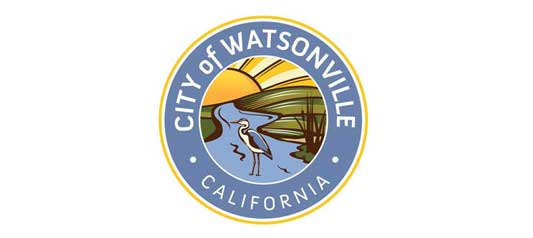WATSONVILLE—The Watsonville City Council on Tuesday decided to push its decision on proposed changes to the City’s cannabis laws to its March 24 meeting.
The move, approved by a 6-1 vote with Mayor Rebecca Garcia dissenting, came after City Attorney Alan Smith told the Council that the approved amendments to the ordinance would require a new first reading at a future meeting.
Councilwoman Ari Parker passed a pair of amendments and councilwoman Trina Coffman-Gomez added another one over the course of the three-hour discussion in front of a crowd of roughly 80 people. Several members of the cannabis industry were in attendance as well as students, parents, teachers and other community advocates that were concerned with the industry’s quick growth in the small city.
Parker’s first amendment called for the implementation of the City’s cannabis equity program, and her second required the City to set aside a number of licenses for applicants certified through the program.
Passed unanimously by the Council in March 2019, the equity program sought to help local, disadvantaged and minority business owners qualify for state funding from the Bureau of Cannabis Control through the Cannabis Equity Act of 2018.
Parker did not specify how many licenses she would like to be set aside. The amendments passed 5-2 with Garcia and councilman Francisco “Paco” Estrada voting no and, instead, asking for the equity program to be brought back to the Council at a future date.
Coffman-Gomez’s amendment required 15 percent of the products at retail businesses to be from local manufacturers and cultivators. That amendment passed unanimously.
City staff proposed the addition of several new licenses: six manufacturing, two distribution, three retail, seven delivery and an unlimited amount for testing.
Currently, the City allows six cultivation and nine manufacturing licenses.
A little more than a half-dozen young people and several representatives from Pajaro Valley Prevention and Student Assistance urged the council to only add two retail licenses and also lower the number of delivery licenses.
Estrada proposed an amendment to limit retail and delivery licenses to two and five, respectively, but that failed 4-3 with council members Lowell Hurst, Felipe Hernandez, Aurelio Gonzalez and Coffman-Gomez voting no.
Additionally, the City proposed increases to the maximum square footage for cultivation from 5,000 to 22,000 and also asked the Council to require employee background checks for only managers and owners. The City also proposed allowing one license to be spread over more than one property and suggested in which districts retail businesses would be allowed to operate. But by the end of the night, all of that took a back seat to the discussion of the City’s equity program.
Watsonville Community Development Director Suzi Merriam said the City has not taken any action to implement the program to date.
Parker’s amendment would require staff to implement the program alongside the current update to the cannabis ordinance. That would include City Manager Matt Huffaker appointing a licensing official that would oversee the application process, establish rules and regulations and work directly with applicants to help them find funding and become an equity-certified business.
“It’s here, it’s codified and we need to implement that,” Parker said.
Merriam, instead, suggested staff use the parameters from the program during the application process to favor applicants that meet its “standards,” which include people that have been negatively impacted by cannabis criminalization, attended a Pajaro Valley Unified School District school for at least five years or are “economically disadvantaged.” It also includes women-owned businesses.
Parker, however, said that having the appointed licensing official was essential in finally implementing the equity program, which her constituents have long called for.
“We have lots of partners out there and our local cannabis partners, especially the ones that [were here] when we started the ‘think local, think small, move forward cautiously,’ they have been here for a long time and they have been without that certification and that’s just not fair,” she said.
Notable staff recommendations:
Number of licenses
Cultivation: 6
Manufacturing: 15
Distribution: 2
Testing: unlimited
Retail: 3 (delivery included)
Delivery: 7, for existing local cultivation/manufacturing
Maximum square footage for cultivation
Increase the max from 5,000 square feet to 22,000 square feet.
Cannabis facilities requirements
- Allow one cannabis license to be spread out over more than one parcel
- Allow multiple licenses per parcel; different businesses—retail, manufacturing, cultivation, research—can cluster on large industrial parcels
Allowable zoning districts
Retail will be allowed in areas zoned Industrial Park, General Industrial and Visitor Commercial—mostly properties on the city’s outskirts.













